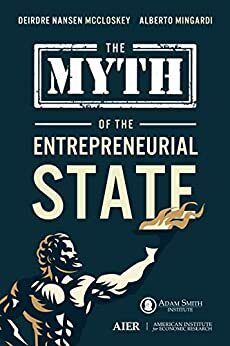ECOSYSTEM EDGE.Sustaining Competitiveness in the Face of Disruption
Selected statements from the book:
Each of the four ways in which the development of an ecosystem can unlock new value—through new product bundles, new customer solutions, new platform economies, and spawning new industries—shares a common characteristic: they require a process by which new customer value is discovered. The new value is not just assembled or delivered from existing elements by following a predetermined blueprint; it has to be identified. Business ecosystems come into their own by facilitating the process of discovery.
Discovering new sources of value requires the three key capabilities that ecosystems excel at: a huge potential for rapid, joint learning and innovation; the ability to harness the capabilities of diverse players and channel them toward a common goal through the leadership of an enlightened company; and the flexibility for continuous reconfiguration in the face of an uncertain, fast-changing environment.
Given these demands, what can you do as an ecosystem leader to catalyze and promote the discovery of new value through your ecosystem strategy?
The rise of ecosystems will also rewrite the rules of competition and strategy as we have come to know them, encapsulated in the seminal work of Michael Porter. The classic cost-leadership strategy based on growing the volume of products and services a company produces to reap economies of scale that drive down costs below competitors, will be replaced. In a world of competing ecosystems, cost advantage will come from aggregating the scale of your entire partner network to spread the fixed costs of investments in everything from design and innovation through to production and distribution. Your ability to reap network economies will become decisive.
As competition between ecosystems grows, rewriting the rules of competition in the process, the demands on ecosystem leaders are only set to increase. The pressure to discover new sources of value for customers and to craft unique and attractive offerings will intensify. Partners will evaluate whether joining an ecosystem can deliver benefits, as well as how one ecosystem’s value proposition compares with that of another network. A potential ecosystem leader’s value proposition to partners will need to be top-notch. In the competition between ecosystems, the speed with which a leader kick-starts a virtuous spiral of cooperation and the rate at which it can scale its ecosystem are both critical. Those that get ahead because of network economies will surge forward in what could easily become a winner-take-all game. However, to sustain the ecosystem leader’s competitive position, the amount of learning and innovation generated by the ecosystem, and its ability to capture that learning, will be critical. Ecosystems that are less productive and efficient will be unable to compete. Mastering the strategies and capabilities we described earlier will become even more essential tomorrow than they are today.
This is the only book that finally provides some clear conceptualisation on ecosystems., as far as I know.
















